September 21, 2015, by Editor
U21 Summer School in Mexico
Low budget Healthcare: What the U21 Summer School in Mexico taught me
Despite our best efforts as Pharmacy students, terminologies like QALY might sometimes seem a bit of a blur through those 9 am lectures after a whole night of binge-watching Mad Men or Gossip Girl. However it is hard to miss words like ‘managing resources’ or ‘cost effective treatments’ in your four years of being a Pharmacy undergraduate. While it is no secret that the NHS could benefit from cost-effectiveness now more than ever, does it sometimes make you wonder what the utopia of cost-effectiveness looks like?
Recently I had the great privilege to attend the U21 Summer School in Tecnologico de Monterrey, Mexico to learn more about what it really means to provide healthcare with very limited resources, especially among vulnerable populations within the country. It made perfect sense to have it in Mexico, with a population of 120 million and approximately half of them living below the poverty line. Health inequality unfortunately plagues this beautiful country.
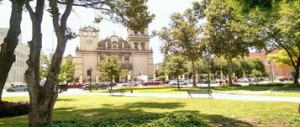
Monterrey
Monterrey is a rich mixture of modern high rises and old heritage buildings which made it quite a sight. Throughout the course of two weeks, we were based in the campus of Tecnologico de Monterrey, located 20 minutes from the city centre.
One of the best parts about being in the summer school was being able to experience the diversity in cultures. There were participants from as close as Birmingham to as far away as Sweden, South Africa, the USA, Australia, New Zealand and China.
We learned that the previous decentralised governing of healthcare had produced some rather vulnerable populations that were not covered by any healthcare plan. The key issue was, how could they provide basic healthcare for the people affected at a low cost? The Pan American Health Organisation (PAHO) has taken a keen interest in this issue and has been trying to improve conditions for the elderly as Mexico has an ageing population. Fortunately for us, this summer school was involved in this initiative. So we spent the first week learning about their healthcare systems and about which diseases are commonly affecting the Mexicans. We planned a set-up of health booths in community centres for the elderly. In multidisciplinary teams, we worked with the local experts to construct health risk assessments and arrange other health checks like blood glucose, blood pressure, hearing and eye function. We also planned some psychological stimulation activities to help provide a more holistic approach to ageing.
The principle behind these ‘health stations’ was presented to us by Mr Enrique Ruelas who served as the previous Secretary of the General Health Council of Mexico. He said that our goal should be to empower and educate our patients and that only by increasing health literacy could we truly reduce the cost of healthcare. This made sense because almost three-quarters of the NHS budget is dedicated to chronic diseases.
For example, in the case of diabetes, nearly £10 billion is spent annually on the treatment of diabetes and its complications. By focussing our investments and efforts in prevention and patient education about lifestyle choices, the amount of money saved in the long run could potentially be very substantial.
All in all, this experience has given me so much in return for my two weeks. Team working skills, communicating in a different language and problem solving just to name a few. Too often it’s easy to forget that our four years at university would not mean much if we could not translate what we have learned to our patients. This summer school has enhanced what I have learned during my time at university.
For those who are interested in joining the U21 summer school next year, you will be glad to know that it wasn’t all work and no play. After our daily activities, we had the chance to use the swimming pool, travel further afield and experience amazing food and culture.
Not forgetting getting our groove on with Bachata lessons during field work.
So if you’re up for new cultures and experiences and working in an extremely diverse group of people in a foreign country, put on your fedoras next summer and look out for the next summer school experience. I promise it’ll be the best decision you’ve made in ages.
Sean Quay (4th year undergraduate student at the School of Pharmacy)
No comments yet, fill out a comment to be the first

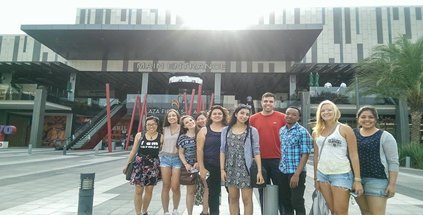
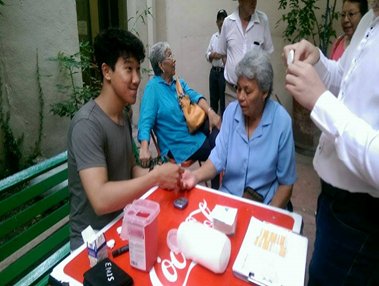
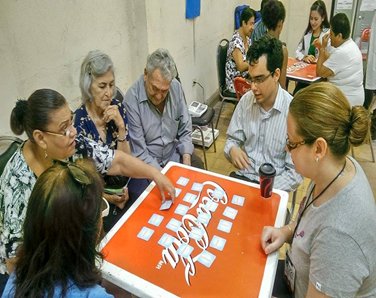
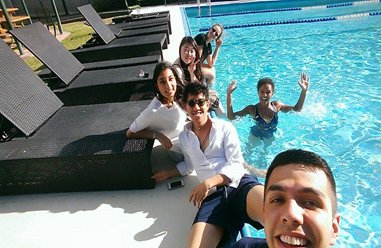
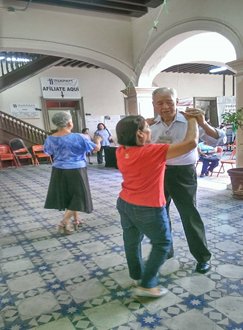
Leave a Reply